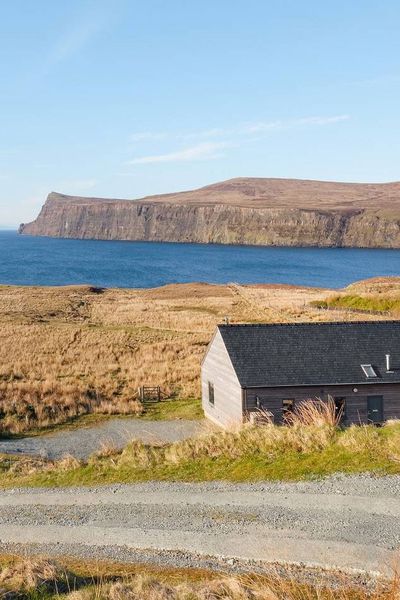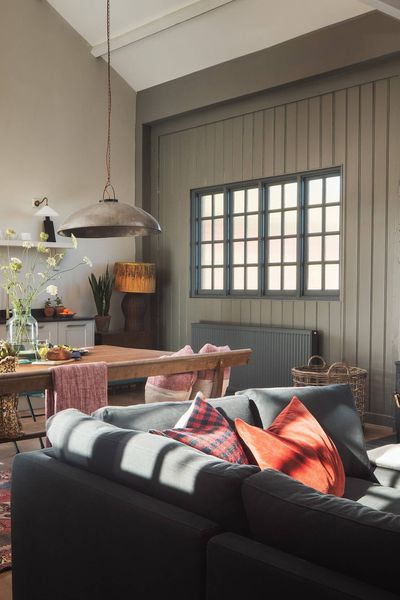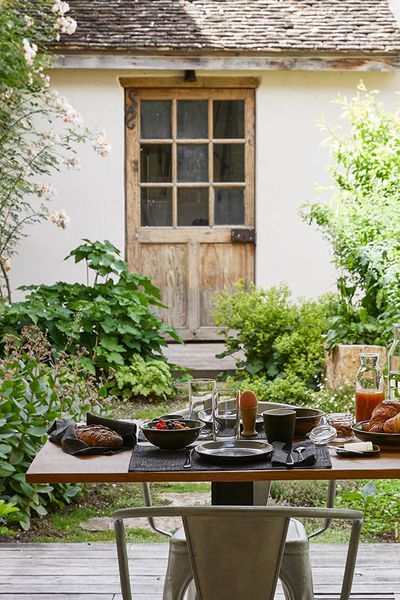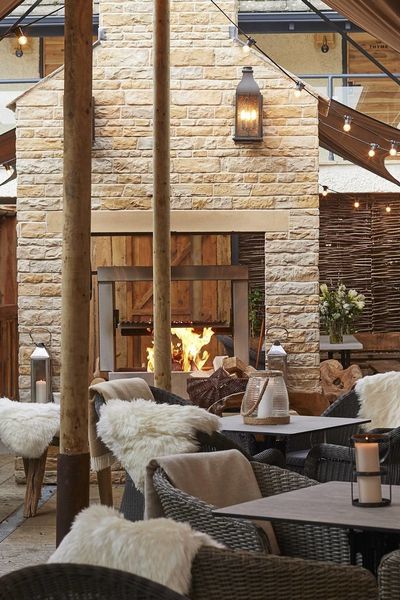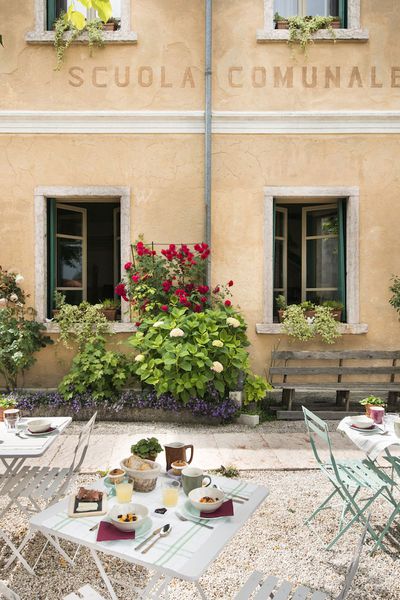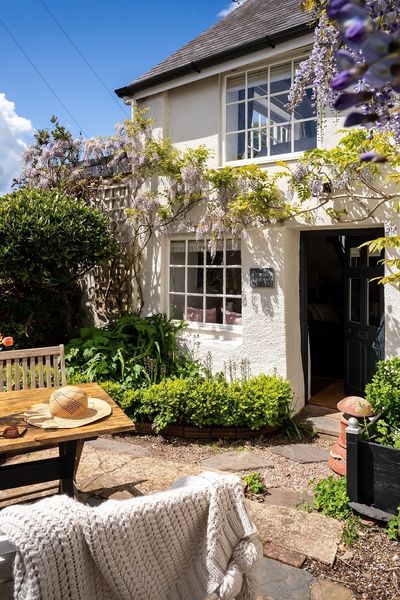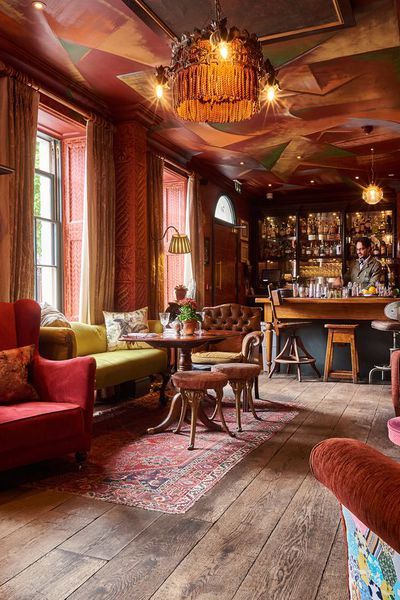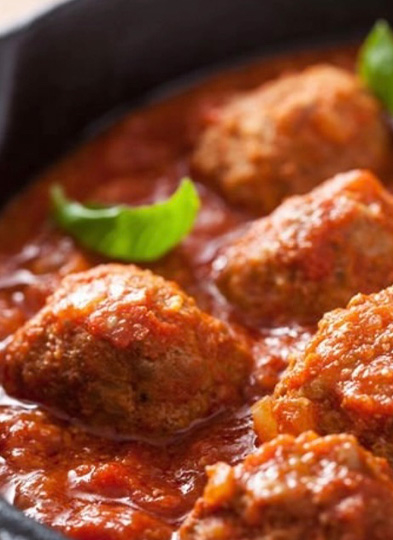
Sawday’s Food: Manuela & Salvatore at Palazzo Frangipane
Sawday's Expert
5 min read
We talk to the owners of Palazzo Frangipane about bringing together the love, work, and knowledge of their community to create perfect and simple food. Salvatore and Manuela also share two traditional Puglian recipes: meatballs with basil sauce and swordfish alla pizzaiola.
Traditional Apulian recipes by chef Salvatore of Palazzo Frangipane
Polpette pugliesi al sugo con basilico – Apulian meatballs with basil sauce
This is a recipe my mother, Angelina, gave me, with all her love. On the meatballs themselves, she had many tips to make them perfectly compact and soft.
For the meatballs
- 500 g mixed mince
- 2 eggs (large)
- 4 tablespoons Grana Padano cheese
- 100 g breadcrumbs
- q.b. Salt (q.b = quanto basta, to taste, lit: as much as is enough)
- q.b pepper
- q.b chopped parsley
- 1 clove Garlic
- 4 tablespoon extra virgin olive oil
For the sauce
- Tomato sauce (homemade would be ideal)
- 1 onion
- q.b. extra virgin olive oil
- q.b. salt
- 2 carrots
- 1 celery stalk
- q.b fresh basil
Method:
Finely chop onion, garlic, carrots and celery and put them in a saucepan with 4 tablespoons of extra virgin olive oil.
In a separate bowl, place the minced meat, eggs, chopped parsley, breadcrumbs and grated Parmesan cheese. Mix all the ingredients well and place in the fridge to rest for 15 minutes.
After 15 minutes, wet your hands with a little cold water and form round patties of the desired size.
Turn on the heat under the saucepan and brown the previously prepared ingredients on high heat, then introduce the meatballs and brown them slowly, taking care not to break them.
When they are well browned on all sides, introduce the tomato sauce and 200 ml water.
Cover with a lid and simmer for about an hour.
When the cooking is finished, add chopped basil or whole leaves.
The meatballs are now ready to be served as a main course or with the typical Apulian pasta, orecchiette.
Chef’s tip: don’t make the meatballs too small because they break more easily.
Pesce Spada alla Pizzaiola – Swordfish alla pizzaiola
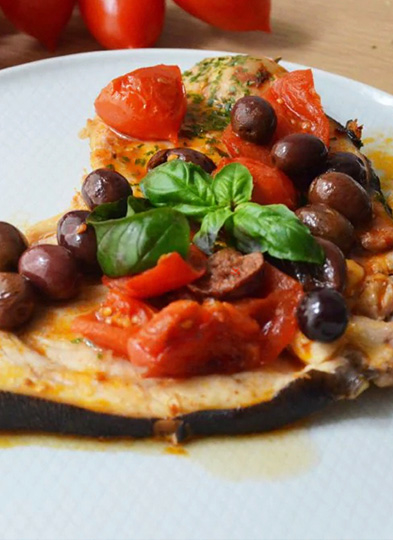 Ingredients:
Ingredients:
- 600 gr. swordfish strips
- 500 gr. cherry tomatoes
- 100 gr. black olives
- 2 cloves of garlic
- q.b oregano
- q.b basil
- 4 tablespoons of extra virgin olive oil
- q.b salt
- q.b pepper
Method:
Dice the cherry tomatoes and mince the garlic.
Then brown them with two tablespoons of extra virgin olive oil in a saucepan. When they have wilted, turn off the heat.
In another saucepan, put the two tablespoons of olive oil and brown the swordfish steaks on both sides – about two minutes per side over high heat. Season with salt and pepper to taste.
When they are nicely browned and golden, add the cherry tomatoes and garlic, wilted separately, and the oregano
Leave to simmer for another ten minutes, taking care to cover the casserole dish with a lid.
When cooked, serve the swordfish garnished with a few fresh basil leaves.
Enjoy your meal…..
Octopus in Pignata
Octopus in pignata is an ancient Salento recipe whose name derives from the typical terracotta pot in which it was cooked: the pignata. Every family has handed down their own version for generations. This is mine:
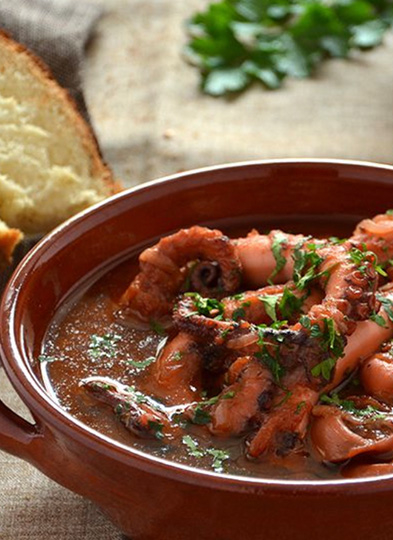 Ingredients:
Ingredients:
1.2 kg octopus
600 g ripe tomatoes
1 onion
two table spoons of extra virgin olive oil
2 cloves of garlic
2 bay leaves
300 ml water
q.b pepper
q.b parsley
Method:
Put an earthenware casserole with a lid on the stove, add the extra virgin olive oil, chopped garlic, chopped onion, bay leaves and octopus.
Allow to brown for a few minutes over a high heat.
Add the chopped tomatoes, 300 ml water and cover the casserole dish with a lid and cook over a low heat for about an hour.
Remove the lid and cook on high heat for another twenty minutes or so, so that the water evaporates.
Serve in pignata with a sprinkling of parsley and toasted bread croutons.
Chef’s tip: half an hour before the end of the cooking time, add some large diced yellow pasta potatoes for a delicious one-pot meal.
Enjoy your meal!!!
Places to stay
Share this article:
You might also like
Inspiration of the day: Handmade tagliolini by chef Domenico Consoli, Masseria Montenapoleone

Christopher Wilson-Elmes
Sawday's Expert
5 min read
Gill Meller’s taste of Dorset: Roast fennel and potatoes with pesto

Gill Meller
5 min read
Gill Meller’s Taste of Dorset: Fried mackerel with tomatoes, garlic & herbs

Gill Meller
5 min read
